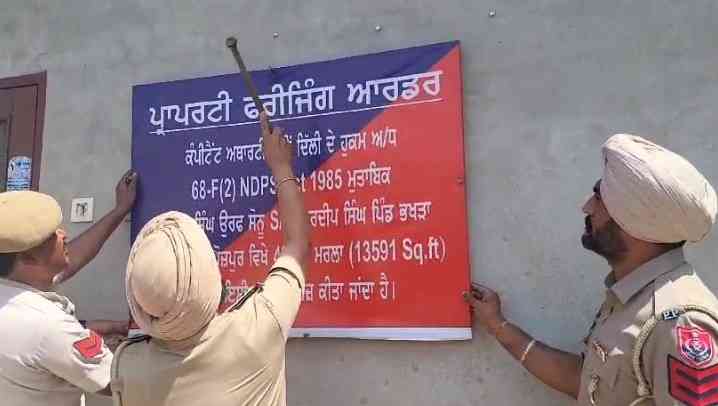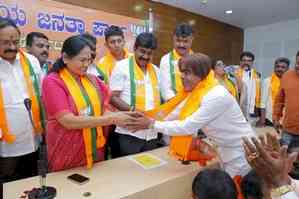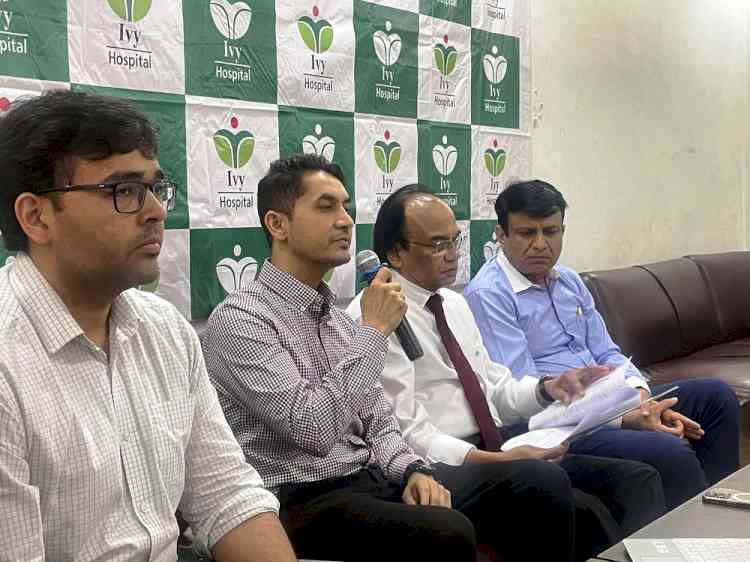Need for a New Policy under GST - Removing CVD exemption will hurt local manufacture
Author(s): City Air NewsNew Delhi: Exemption of CVD was introduced two years ago for Mobile Handsets and Tablets and expanded last year to Mobile accessories such as Chargers, Batters Packs and Headsets as well as to Customer Premise Equipment....

New Delhi: Exemption of CVD was introduced two years ago for Mobile Handsets and Tablets and expanded last year to Mobile accessories such as Chargers, Batters Packs and Headsets as well as to Customer Premise Equipment. This gave a CVD exemption benefit ranging from 11.5% to 10.5% to these manufacturers and brought in large investments in assembly operations. The logical way forward would be to take these benefits to the next level so that the manufacturing activity could move from SKD to CKD and to manufacture of components resulting in establishment of the full eco-system in the country with the resulted benefits and boosting Make in India.
ELCINA has been surprised at the announcement by the revenue secretary Mr. Hasmukh Adhia that exemption from CVD will not be allowed to IT and Telecom sector under the new GST regime. The Association apprehends that this will adversely impact local manufacturing and cause a setback to the momentum gained over last two years.
The government’s mission of “Make in India” will be impeded as production in the country of above mentioned products will again became unviable. It will result in loss of jobs that were gained for the sector and will send a wrong message for foreign investors that there is no consistency in policy. With the removal of Duty differential and local manufacturing becoming more costly, people will again switch to 100% imports, says Mr Vikram Desai, President, ELCINA. Revenue Secretary’s announcement that government was unlikely to provide any exemption on CVD to IT & Telecom manufacturers in the upcoming GST regime, has sent shock waves. Mr. Adhia has stated that the only way to create duty differential was to impose higher custom duty in some cases. Mr Desai says that whenever ELCINA made such a proposal it was turned downvbecause of our commitment to ITA Agreement under WTO.
ELCINA is in touch with the Ministry of IT & Electronics to highlight the issues that concern the industry. The Association has been working with MeitY to support its plea for continuation of CVD exemption benefits or to substitute them with other policy support so that thousands of jobs and investments that have been going in this sector can be sustained and expanded.
ELCINA has been recommending incentives associated with value addition and this is the only way in which a sustained growth of the electronics eco-system and value chain can happen in India. While differential duty was a good shot in the arm to promote assembly of mobiles, tablets and other items mentioned above, there was always doubt on how his would be implemented deeper down to the value chain to include parts and components, stated Rajoo Goel, Secretary General, ELCINA. Even now it is not too late and government must consider giving benefits not only to mobiles, tablets etc., which are covered under the differential duty regime, but to other electronic products as well. Benefits must be based on value addition and encourage expansion of the local supply chain to include manufacture of sub-assemblies, parts and components. It has been recommended by ELCINA that a much better way to grow manufacturing and local value addition would be by disallowing CGST credit on imported finished equipment. Thus traders would not get benefit of credit and would pay additional GST as applicable on the local sales of the imported product. On the other hand importers of parts who manufacture the finished
product locally would get this benefit and remain competitive.
Another suggestion focused on encouraging domestic manufacturing of inputs (Components & assemblies) is that CGST paid by IT/Electronic Equipment manufacturers on the locally manufactured inputs used by them may be refunded for a stipulated period of time to give an impetus to domestic manufacturing. Further a minimum 10% BCD should be imposed on all nonITA
items to disincentivises imports and promote their manufacture in the country.

 cityairnews
cityairnews 















